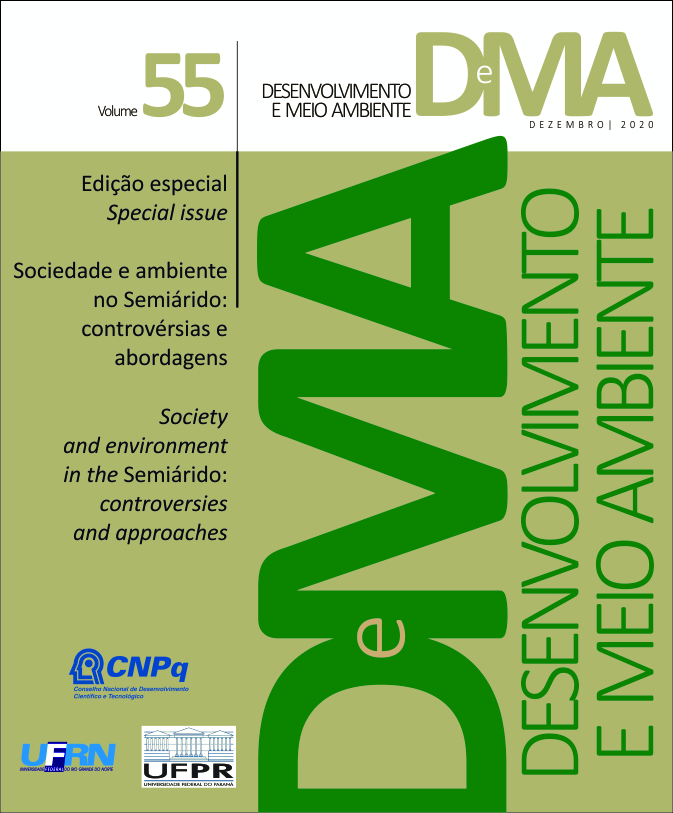Sustainability and environmental education in family agriculture: the case of a cooperative in the Potiguar semi-arid
DOI:
https://doi.org/10.5380/dma.v55i0.73169Keywords:
sustainable practices, agroecology, coopapi, Apodi/RNAbstract
The work aimed to identify how the Potiguar Cooperative of Apiculture and Sustainable Rural Development (COOPAPI) operates in training processes directed to environmental education and sustainable practices with cooperative farmers. To obtain the research data, a semi-structured interview was used, in order to identify in detail the sense and meaning attributed by family farmers as to the relationship between environmental education and sustainability in family farming. The study revealed that the environmental theme is not experienced through training that can direct farmers to introduce it in their ambience intentionally; however, farmers experience environmental education through their daily farming activities. Still, farmers see the cooperative as a facilitator of sustainable practices, since the cooperative assists in the tasks of guiding farmers in organic cultivation and inspects the misuse of resources.
Downloads
Published
How to Cite
Issue
Section
License
Copyright on works published in this journal rests with the author, with first publication rights for the journal. The content of published works is the sole responsibility of the authors. DMA is an open access journal and has adopted the Creative Commons Attribution 4.0 Not Adapted (CC-BY) license since January 2023. Therefore, when published by this journal, articles are free to share (copy and redistribute the material in any medium or format for any purpose, even commercial) and adapt (remix, transform, and create from the material for any purpose, even commercial). You must give appropriate credit, provide a link to the license and indicate if changes have been made.
The contents published by DMA from v. 53, 2020 to v. 60, 2022 are protected by the Creative Commons Attribution-NonCommercial-NoDerivatives 4.0 International license.
DMA has been an open access journal since its creation, however, from v.1 of 2000 to v. 52 of 2019, the journal did not adopt a Creative Commons license and therefore the type of license is not indicated on the first page of the articles.




